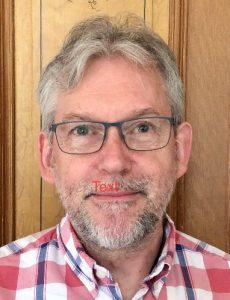3 day Meridian therapy seminar with Stephen Birch
A Hands-on Introduction to
Keiraku Chiryo-Japanese Meridian Therapy
Instructor: Stephen Birch PhD, Acupuncturist
Assisted by Lars Schuster, Acupuncturist
What is Chiryo-Japanese Meridian Therapy
Keiraku Chiryo – Meridian Therapy, is a traditional form of acupuncture from Japan. It uses very delicate needling techniques to regulate the jing-luo or channel system following traditional theories of acupuncture. Diagnostic decisions are largely based on palpation methods, especially of the radial pulses and abdominal palpation. The practice methods of this system are checked through continuous feedback of the pulses and other palpatory findings in a very systematic and practical manner.
Return to the classics through modern clinical practice
Meridian Therapy, is a movement to “return to the classics” through modern clinical practice. The movement started in Japan in the 1920s reaching maturity by the early 1940s. Today this movement represents ‘traditional acupuncture’ in Japan with as much as 15% of the 80,000+ acupuncturists in Japan thought to be using it. While there is a range of styles of Meridian Therapy with various ideas, approaches and methods, there are a few basic ideas that these styles have in common. Each places great emphasis on the following: radial pulse diagnosis, especially six position diagnosis; abdominal diagnosis; the basic theories of the Nan Jing, where the channel circulation model is placed at the center of practice; the goal of treatment is simply to supplement the channels that are vacuous and drain those that are replete; very gentle needling techniques are used to accomplish this.
Hands on seminar
After a brief discussion of the theories and development of keiraku chiryo, the focus will shift to practical skills, in particular: the basic diagnostic approaches of pulse and abdominal diagnosis, primary needling techniques, [barely inserted needling techniques (0.5 – 1 mm)] and a systematic step by step simplified treatment approach. During the workshop the instructor will teach how to perform the core ‘root’ treatment. This method is suitable for almost all patients, especially those who prefer not to feel the needles. Simple needling will be introduced as a method to begin targeting symptoms. At the end of the workshop the instructor will briefly explain how to continue studying and deepening one’s skills by explaining briefly about the Toyohari system.
The workshop will be taught in as hands on an approach as possible to facilitate learning the basic system and its various techniques of diagnosis and treatment.
Seminar program in detail
Friday, June 28, 2019(10.00-13.00 + 14.20-18.00)
10.00 – 10.10 Introduction.
10.10 – 10.50 Overview of the history and development of keiraku chiryo. Treatment demonstration.
10.50 – 11.15 Basic theories of keiraku chiryo – pragmatic Nan Jing model.
11.15 – 11.30 Tea/coffee break.
11.30 – 11.45 Diagnosis – I. Looking/listening/smelling/asking.
11.45 – 13.00 Diagnosis II.
Introduction to Pulse palpation – what is the middle pulse, defining yin-yang pulses, 6 basic pulse qualities & Practice.
13.00 – 14.20 Lunch.
14.20 – 15.00 Diagnosis II continued: Practice pulse diagnosis (using forms).
15.00 – 15.15 Tea/coffee break.
15.15 – 16.00 Diagnosis III: abdominal diagnosis + practice.
16.00 – 18.00 Needling – I: supplementation technique. Clarifying the pulse – needling on the abdomen.
Saturday, June 29, 2019(9.00-12.30 + 14.00-17.00)
9.00 – 10.20 Selection of sho/primary patterns – Demonstrations and practice.
10.20 – 10.35 Tea/coffee break.
10.35 – 12.30 Treatment of primary patterns – points, point location and side of treatment. Practice selection of sho and treatment of primary pattern.
12.30 – 14.00 Lunch.
14.00 – 15.00 Practice diagnosis and treatment of primary patterns.
15.00 – 15.15 Tea/coffee break.
15.15 – 17.00 The secondary patterns (diagnosis, treatment methods, treatment points. Point location, Side of treatment) draining needle technique, Demonstration. Practice treatment primary and secondary patterns.
Sunday, June 30, 2019(10.00-12.30 + 13.45-16.00)
10.00 – 10.30 Yang channel diagnosis, treatment techniques, point selection, point location, side treatment + Practice root treatment including yang channels.
10.30 – 10.45 Tea/coffee break.
10.45 – 11.45 Supportive treatment: Related back shu treatments. Practice root treatment: steps one-four (primary/secondary/yang/back).
11.45 – 12.30 Chishin needling as symptomatic treatment – Demonstration and practice.
12.30 – 13.45 Lunch.
13.45 – 14.30 Practice whole root treatment.
14.30 – 15.00 Demonstrations – whole treatment.
15.00 – 15.45 Overview of the Toyohari – East Asian needle therapy. Keiraku Chiryo system + treatment demonstrations
15.45 – 16.00 Questions and answers.
Stephen Birch
Background
Lives and practices in The Netherlands. He has been practicing Japanese acupuncture for thirty-seven years. As well as studying with senior practitioner-teacher Yoshio Manaka, with whom he wrote the book ‘Chasing the Dragon’s Tail’, he has also studied with a number of other senior Meridian Therapists such as Denmei Shudo, Kodo Fukushima, Toshio Yanagishita, Akihiro Takai, Shozo Takahashi, Koryo Nakada, Shuho Taniuchi and Yutaka Shinoda. He is author of Shonishin – Japanese Pediatric Acupunctureand has co-authored Hara Diagnosis: Reflections on the Sea;Japanese Acupuncture; Extraordinary Vesselsand Understanding Acupuncture.His new co-edited book on Qi and the Jingmai Restoring Order in Health and Chinese Medicinewas released in 2014.
Teaching experience
He is a well-known teacher in North America, Europe and Australasia. He teaches workshops and programs on Japanese acupuncture methods in various locations around Europe including Holland, the UK, Germany, Switzerland, Denmark, Austria, Italy, Spain, Portugal and also teaches in Australasia. He is one of the leading Meridian Therapists outside Japan, specializing in Toyohari, an advanced form of Meridian Therapy. He has helped run and teach Toyohari programs annually in Europe since 1999 and has taught Meridian Therapy in many European countries. He has also been involved in the scientific study of acupuncture for over twenty eight years, with a PhD in acupuncture research, publishing many papers in this area and is Associate Professor at the Kristiania University College, Institute of Health Sciences, Oslo Norway.
Dates
New dates for 2020 are on their way.
Price
Place
Københavns Akupunkturskole (Copenhagen Acupuncture school)
Address:
Nørre Søgade 27A
1370 Copenhagen K
Denmark
Contact
For further information please contact us by:
E-mail: mail@kbh-aku.dk
tel. (0045) 53 88 38 39

